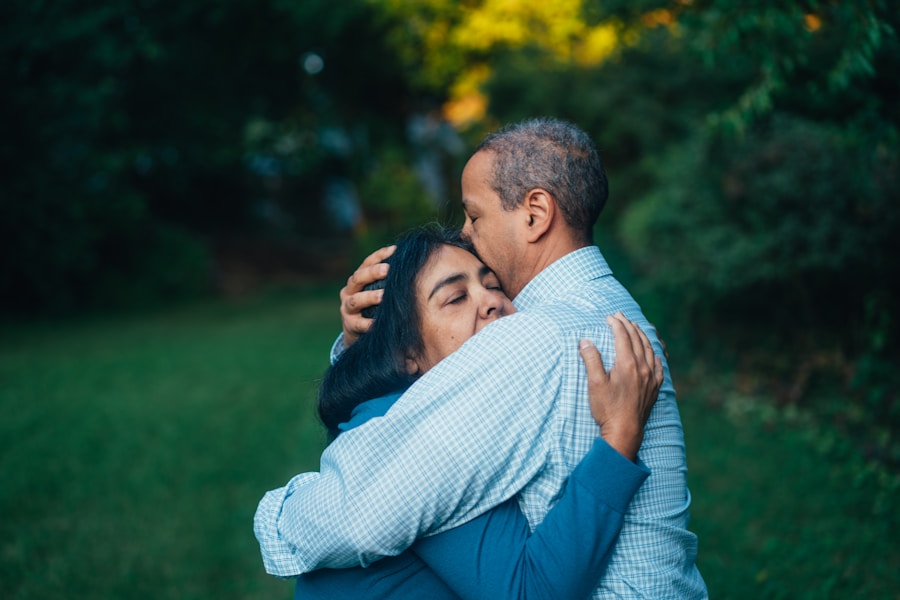Making the decision to end a relationship with a loved one is never easy. Whether it’s a romantic partner, a friend, or a family member, the choice to walk away can be filled with conflicting emotions and uncertainty. It’s important to take the time to understand the reasons behind the decision and to reflect on how it will impact both parties involved. Perhaps the relationship has become toxic or unhealthy, or maybe there are irreconcilable differences that have led to the decision to part ways. Whatever the reason, it’s crucial to acknowledge that this decision was not made lightly and that it is ultimately for the best for both individuals involved.
It’s also important to consider the long-term effects of the decision and how it will shape the future of both parties. Ending a relationship can be a difficult and painful process, but it can also be a necessary step towards personal growth and healing. By understanding the decision and its implications, individuals can begin to move forward with clarity and purpose, knowing that they have made the best choice for themselves and their well-being.
Coping with Guilt
One of the most common emotions that individuals experience after ending a relationship is guilt. Whether it’s feeling guilty for causing pain to the other person or for not being able to make the relationship work, guilt can be a heavy burden to carry. It’s important to acknowledge these feelings of guilt and to work through them in a healthy and constructive way. This may involve seeking support from friends or family members, or even speaking with a therapist to process these emotions.
It’s also important to remember that it takes two people to make a relationship work, and that both parties are responsible for its success or failure. By acknowledging this, individuals can begin to let go of some of the guilt they may be carrying and start to focus on their own healing and well-being. Coping with guilt is a process, and it’s important to be patient with oneself as they navigate through these complex emotions.
Communicating with Your Loved One
After making the decision to end a relationship, it’s important to communicate openly and honestly with the other person involved. This may involve having difficult conversations about why the relationship is ending and what the next steps will be. It’s crucial to approach these conversations with empathy and compassion, as they can be emotionally charged for both parties.
It’s also important to set boundaries and establish clear expectations for how communication will continue in the future. This may involve taking some time apart to process the end of the relationship before attempting to reconnect in a more platonic way. By communicating openly and honestly, individuals can begin to find closure and move forward with a sense of understanding and acceptance.
Seeking Support
Ending a relationship can be an incredibly isolating experience, and it’s important to seek support from friends, family, or even professional therapists during this time. Surrounding oneself with a strong support system can provide comfort and reassurance during this difficult period. It’s important to lean on others for emotional support and guidance as individuals navigate through the complex emotions that come with ending a relationship.
Seeking support can also involve joining support groups or seeking out online communities where individuals can connect with others who have gone through similar experiences. By seeking support, individuals can begin to feel less alone in their journey and find strength in knowing that they are not the only ones going through this difficult time.
Taking Care of Yourself
During this challenging time, it’s crucial to prioritise self-care and focus on one’s own well-being. This may involve engaging in activities that bring joy and comfort, such as exercise, meditation, or spending time with loved ones. It’s important to take care of one’s physical, emotional, and mental health during this period of transition.
Taking care of oneself also involves setting boundaries and giving oneself permission to grieve the end of the relationship. It’s okay to feel sad, angry, or confused during this time, and it’s important to give oneself the space and time needed to process these emotions. By taking care of oneself, individuals can begin to heal and move forward with a renewed sense of strength and resilience.
Finding Ways to Stay Connected
Even after ending a relationship, it’s possible to find ways to stay connected with the other person in a healthy and respectful way. This may involve maintaining open lines of communication, checking in on each other periodically, or finding ways to show support and care for one another from a distance. It’s important to approach this with caution and sensitivity, as staying connected in this way may not be appropriate for all relationships.
Finding ways to stay connected can also involve finding closure and forgiveness for past hurts or misunderstandings. By staying connected in a positive way, individuals can begin to find peace and acceptance as they move forward with their lives.
Moving Forward
After ending a relationship, it’s important to focus on moving forward with a sense of purpose and optimism. This may involve setting new goals for oneself, exploring new hobbies or interests, or even embarking on new relationships when the time feels right. It’s important to approach this period of transition with an open heart and mind, knowing that there are new opportunities for growth and happiness on the horizon.
Moving forward also involves letting go of any lingering feelings of regret or resentment from the past relationship. By embracing forgiveness and acceptance, individuals can begin to find closure and peace as they move forward into the next chapter of their lives. It’s important to remember that ending a relationship is not an end, but rather a new beginning filled with endless possibilities for personal growth and happiness.
